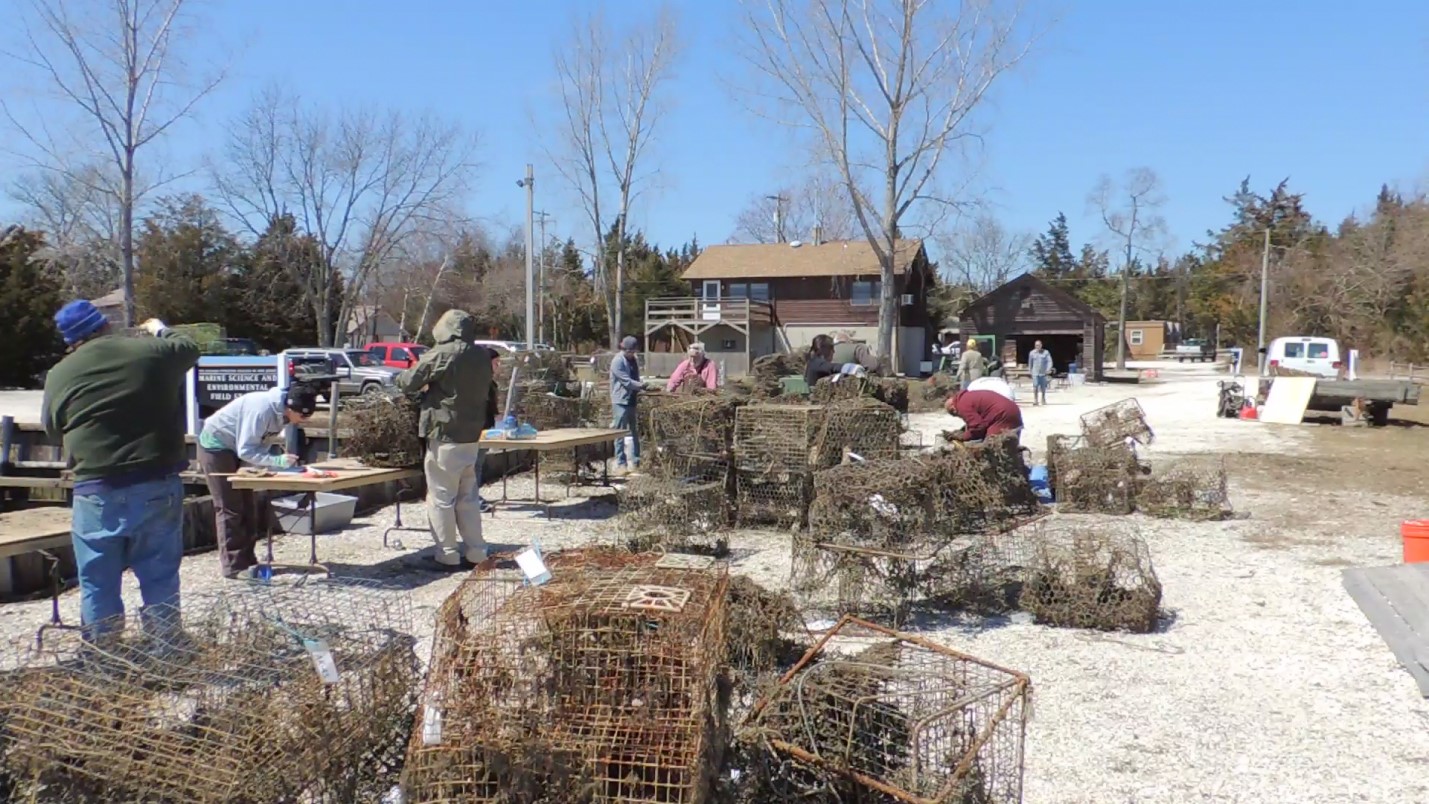Sunken crab traps severed from their buoy lifelines, often called ghost pots, slowly corrode in the saline waters and haunt the muddy floors of Atlantic coastal bays as they continue to trap sea life and pose threats to boaters.
After a successful two-year, NOAA-funded marine debris removal project to recover ghost pots, NOAA has awarded Stockton University additional funding to expand the project and provide sonar training to local crabbers to prevent further losses of crab traps over the next two years.
Stockton’s Marine Science Field Station and crabbers from the community recovered 1,166 ghost pots, weighing in at 7.89 metric tons, from the Mullica River Great Bay Estuary from 2012 to 2014.
A total of $241,597 will support Stockton’s expanded marine debris removal and prevention program beginning this November. About half of the total was granted by NOAA with the other half being an in-kind match by Stockton.

Stockton’s crabbing partners, faculty, staff, undergraduate students and Jacques Cousteau Reserve volunteers work at the university’s Marine Field Station on its annual crab pot processing day last year, where derelict crab pots collected by participating crabbers are returned to the crabbing community or broken down for recycling. Credit: Stockton University